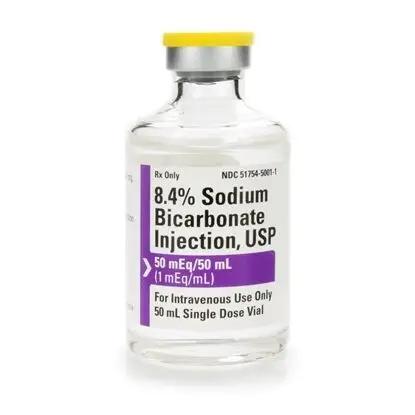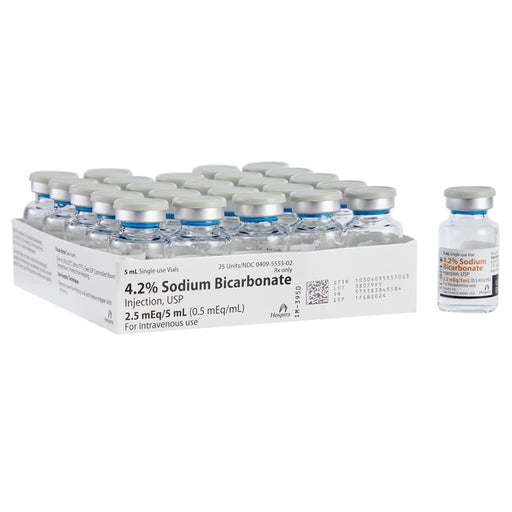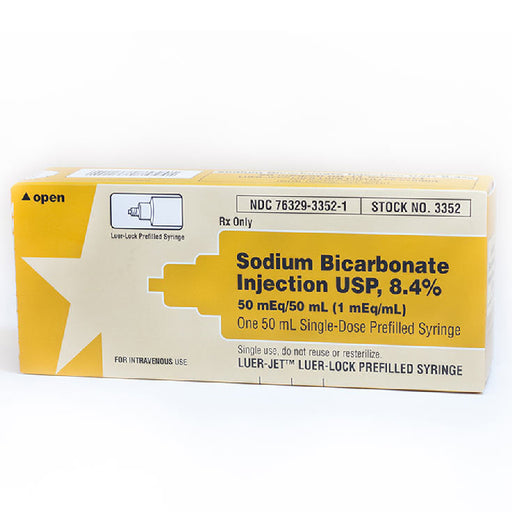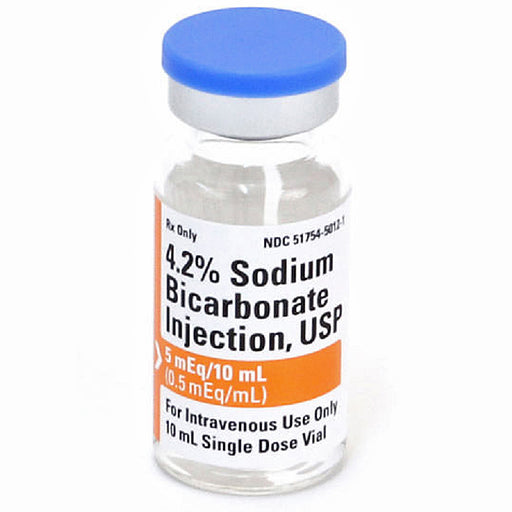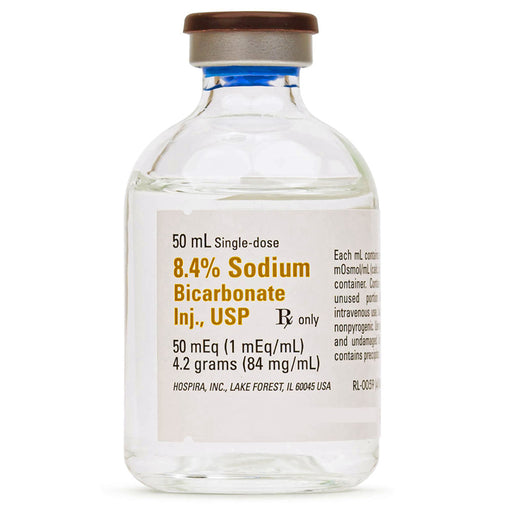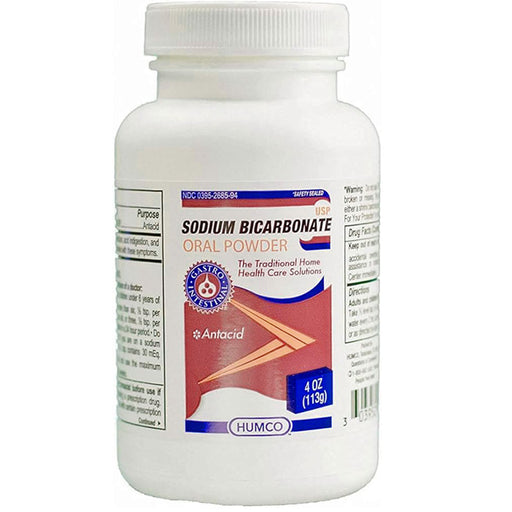What is Sodium Bicarbonate Injection used for?
Sodium Bicarbonate Injection is used in medical settings for several purposes, including:
- Metabolic Acidosis: It helps correct acid-base imbalances in the blood, which can occur in conditions like renal failure, severe dehydration, or diabetic ketoacidosis.
- Cardiac Arrest: It may be used in emergency situations to manage severe acidosis during cardiopulmonary resuscitation (CPR).
- Drug Overdose: Acts as an antidote in cases of certain drug overdoses, such as tricyclic antidepressants or aspirin, by alkalinizing the urine and blood.
- Hyperkalemia: Helps temporarily shift potassium into cells, lowering high levels of potassium in the blood.
This injection should only be administered under the guidance of healthcare professionals.
Sodium Bicarbonate injection Clinical Drug Information
How to administer a Sodium Bicarbonate injection:
Administering a Sodium Bicarbonate injection should always be done by a healthcare professional following specific guidelines. Here’s a general overview:
Preparation:
- Verify the prescription to ensure the correct dosage and concentration.
- Inspect the solution for any particles or discoloration.
Patient Preparation:
- Explain the procedure to the patient.
- Position the patient comfortably, usually lying down.
Administration:
- Intravenous (IV) Injection: Sodium Bicarbonate is typically administered slowly via an IV to avoid complications like alkalosis or electrolyte imbalances.
- Dilution: It may be diluted with a compatible IV fluid before administration, depending on the required concentration and volume.
Monitoring:
- Continuously monitor the patient’s vital signs and response to the medication.
- Watch for signs of adverse reactions, such as fluid overload or changes in blood pH levels.
Post-Administration:
- Document the administration details, including time, dosage, and patient response.
- Continue to monitor the patient for any delayed reactions.
Due to the potential for serious side effects, Sodium Bicarbonate injections should only be administered by trained medical personnel in a clinical setting.
Sodium Bicarbonate injection Side effects:
Sodium Bicarbonate injections can cause several side effects. It's important for healthcare professionals to monitor patients for any adverse reactions. Common side effects may include:
Electrolyte Imbalance:
- Hypernatremia (high sodium levels)
- Hypokalemia (low potassium levels)
Metabolic Alkalosis:
- Symptoms include confusion, tremors, and muscle twitching.
Fluid Overload:
- Especially in patients with kidney issues or heart problems.
Local Reactions:
- Pain or irritation at the injection site.
Respiratory Issues:
- Difficulty breathing in severe cases.
Cardiovascular Effects:
- Fast heart rate
- Hypertension (high blood pressure)
Neurological Effects:
- Headache
- Lightheadedness
Any side effects should be reported to a healthcare provider immediately for appropriate management.

